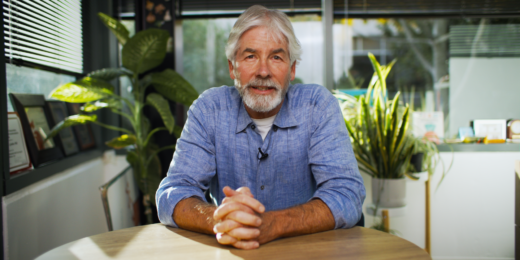On February 11, Nadine Burke Harris, MD, will be sworn in by Gov. Gavin Newsom as California's first-ever surgeon general. Her appointment has been heralded by those who know her at Stanford, where she was a pediatric resident in the early 2000s.
"Nadine's broad scope about the integration of prevention and health delivery systems will make her an asset to our state," said Stanford pediatric psychiatrist Victor Carrion, MD, who has known and collaborated with Burke Harris for more than a decade.
As the surgeon general, Burke Harris "will focus on combating the root causes of serious health conditions -- like adverse childhood experiences and toxic stress -- and using the platform of Surgeon General to reach young families across the state," according to Newsom's statement.
Burke Harris is known for her work championing children's health in California and nationally, focusing on stress and adverse childhood events (ACEs) as causes of childhood and adult illness. After her residency, she joined the California Pacific Medical Center and founded their Bayview Child Health Center in 2007, serving as its medical director. There, Burke Harris saw that the local, urban children she cared for, who suffered from illnesses such as asthma, eczema and attention deficit hyperactivity disorder, had experienced violence, trauma and stress. She was able to confirm that the adversity they endured in childhood was related to their medical conditions.
"An individual with 4 or more of the 10 traditional categories of adverse childhood experiences is twice as likely to develop heart disease, twice as likely to develop cancer, two and half times as likely to have a stroke and almost four times as likely to develop chronic lung disease," Burke Harris said on KQED's Forum in January 2018, citing data from a well-known 1998 study of ACEs and adult health outcomes. "Between half and two-thirds of the population has experienced one adverse childhood event, and between 13 and 17 percent of the population has experienced four or more. This is a public health crisis that we're dealing with," she said.
During her first year at Bayview, Burke Harris was introduced by Kamala Harris, then district attorney of San Francisco, to Carrion. They shared, Carrion said, a "profound concern for the state of children who experience traumatic stress."
In 2011, Burke Harris and Carrion published a paper demonstrating the impact of ACEs in the Bayview community. "This led to our understanding of the impact of ACEs on learning, development and health, necessitating a site with specific attention to the screening, treatment and prevention on youth experiencing traumatic stress," Carrion said. "The site would become an expansion of Nadine's pediatric clinic in Bayview, but with a new vision of integrated care with mental health."
That site, the Center for Youth Wellness, opened in 2012 in San Francisco, with Burke Harris as its first CEO. "This center has become a national hub of advocacy for adverse childhood experiences," Carrion said. It also became a crucial access point for local families to obtain care, and a setting where Burke Harris and her colleagues could continue to study the impact of ACEs on health.
Carrion and others are hopeful that as surgeon general Burke Harris will be able to improve the lives of children in California and beyond. As she writes in her 2018 book, The Deepest Well: Healing the Long-Term Effects of Childhood Adversity:
"Twenty years of medical research has shown that childhood adversity literally gets under our skin, changing people in ways that can endure in their bodies for decades. It can tip a child's developmental trajectory and affect physiology. It can trigger chronic inflammation and hormonal changes that can last a lifetime. It can alter the way DNA is read and how cells replicate, and it can dramatically increase the risk for heart disease, stroke, cancer, diabetes--even Alzheimer's. ... If we put the right protocols into place in pediatric offices across the city, country, and world, we could intervene in time to walk back epigenetic damage and change long-term health outcomes for the roughly 67 percent of the population with ACEs and their children. And, someday, their great-grandchildren."
Photo by Ricardo Mendonça Ferreira




